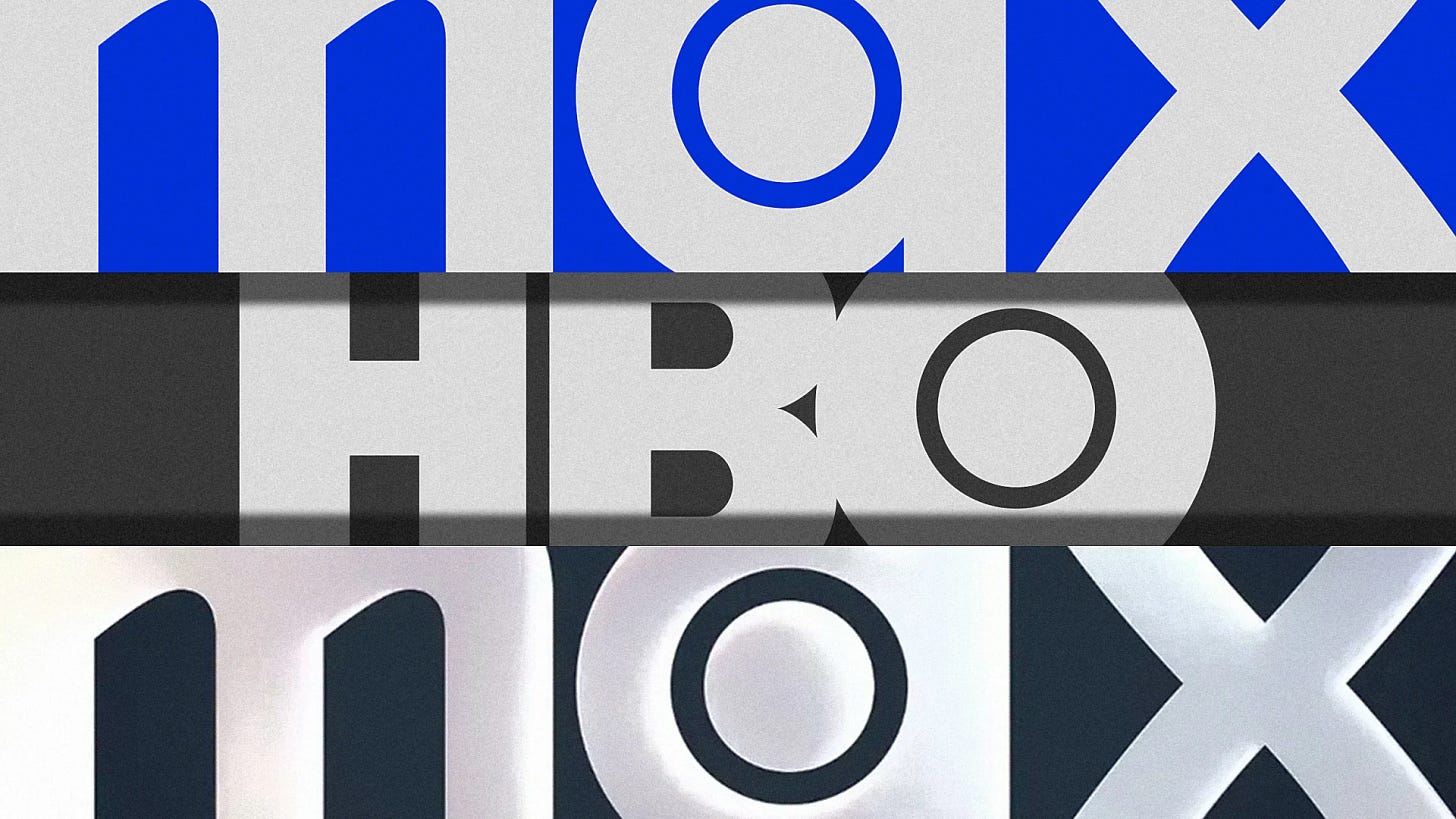AI dubs & K-pop flubs?
Has K-pop plateaued? Are we on the brink of a new age of international films? Is 'uneasy' good for an ad? Have you ever thought of how your name has led your life? Has Max actually been HBO all along?
“trying to be all things to all people, end up being nothing to no one.”
This thought is relevant to much of what we are involved in, across sectors. Especially when building or shaping brands, ideas, IPs and personas. I have seen (and felt) this being a constant tussle. The lure of being wildly mass versus the risk of being a beloved niche; the hesitancy to scale for the fear of losing your core base.
Today that quote comes in the context of K-pop, which has seen some concerning trends, sluggish data and legal challenges through 2024 and early this year- both internationally and domestically. I explored what’s going on and the causes for caution, or optimism.
Expanding your consumer base is also at the heart of localising and adapting for multiple markets in entertainment. An AI-powered visual dubbing technology aims to supercharge how entertainment can transcend borders, while keeping the creators’ vision intact. Let a Swedish UFO film show us the way.
Curated/Cuts swings between hedonistic images from Fashion, powerful spoken word poetry, and a clever creative approach celebrating Senna (the man and the Netflix series).
+ Quickies on Max’s HBO look, the Amazon Studio leadership void, and music in your Whatsapp.
This is the Colour Bar- where creativity, content, culture, tech, brands & humanity collide.
Vubbing
Amidst all the flashy Gen-AI stuff, the most notable and impactful changes are going to happen under the hood, on the fringes of what consumers perceive, but affecting their experience. Here we are, with an example of both. ‘Watch The Skies’ is the first non-English language film, dubbed with AI. It launches, in English, in the US next month. The team at Flawless, the Swedish AI company that powered this, seem to like calling it ‘vubbing’, or visual dubbing. To be clear, neither the actors nor the voices are generated by AI, but combined with 3D models, the actors own readings, and their True Sync tech, so it appears as if the they are speaking in English.
I have written previously about the choice between subtitles and dubbed versions; how certain demos and markets seem to prefer hearing their translations than reading them- the US is famously not keen (audiences “groan about subtitles”). What Flawless are doing could be transformative for all manner of content, making it travel like never before. It is the closest we are right now to retaining the nuance and tone of the ‘original’, while speaking to viewers in their language. There is much more here on offer with such a technology than mere dubbing of course- the possibilities for education and accessibility are tremendous, though beyond the scope of this particular application.
Flawless describes it as, “the world's first theatrical full-length feature to use AI for immersive dubbing, making the characters appear to be speaking English, even though the original film was shot in Swedish. This pioneering approach seamlessly integrates the voices of the dubbing actors into the film, ensuring perfect lip sync and eliminating the need for subtitles altogether.”
This behind the scenes cum-trailer shows it off.
Sofie Hvitved has a good take on Linkedin, coining the term ‘liquid films’, noting astutely that- as always- “the technology moves faster than our frameworks for thinking about it.”
Flawless was founded in 2018 by multi-hyphenate director Scott Mann and Nick Lynes, and are already into distribution, looking to acquire rights for films that can hope for different success in overseas markets with their technology. Read more about them here in a piece last year by Matt Donnelly.
Curated/Cuts.
1. 'Name The Bias'. People Like Us in the UK, presents a piece led by spoken word artist Yasmin Ali. A simple, powerful short with subtle yet telling nuances. Made for a campaign to highlight the inequity faced by ethnic minority workers in the UK, the film was inspired by an Oxford University study that found applicants from ethnically diverse backgrounds had to send 60% more applications to get a response from an employer, compared with an applicant with white British origin.
So, is your name working out well for you?
· Director Naghmeh Pour ·
2. Houseguests: Here’s a fashion campaign that might inspire, or titillate, or disturb, or frustrate. I think the spot is best introduced by the brand itself- Diesel.
They wish to “antagonize and amuse with ironic visual narratives stocked with eccentrics. ‘The Houseguests’ is inspired by an archival Diesel campaign from SS94 depicting a multigenerational cast of disparate characters in a living room, shot from a bird’s eye view. Photographed by Frank Le Bon, the SS25 campaign emboldens the concept, capturing a range of absurdist scenarios”.
3. Senna in 1:23. Its Senna’s birthday. You have to create a piece for the series made on his life to celebrate his birthday. You are a fan. You think of his legendary performance in Monaco, 35 years ago. Someone wonders if anything could be created to match the intensity of that great drive. Why don’t we create a spot that is exactly the same duration as his lap time, someone says casually. That’s absurd. Or is it? Monks not only did this, but decided to use the entire series. What does that even mean?
“A 1:21.314 edit of his 6-hour Netflix series, cut to match the exact pace of his legendary 1990 Monaco lap. Every acceleration, turn, and brake follows the rhythm of that iconic drive”.
What does that even look like?
Press play.
K-risis?
K-pop, celebrated for its meteoric rise and cultural influence, now seems to be navigating a complex landscape, from both market pressures and internal shifts. Recent discussions have centred around declining album sales, legal controversies involving prominent groups, and shifting audience dynamics.
Blockbuster acts continue to fuel international excitement, but there is a sense this might be plateauing; industry murmurs feel a focus on global appeal might be coming at the expense of domestic relevance.
In 2024, South Korea saw a notable 19% decline in physical album sales, the first downturn in nine years. This trend is being attributed to a clutch of factors, including a reduction in aggressive marketing tactics and fewer blockbuster album releases. At the same time, the global export growth of K-pop albums has slowed significantly too- 2024 saw only a 0.55% increase.*
Commentators point to the absence of new globally dominant groups as one reason, arguing the need for fresh superstars to carry the genre further into Western markets. Solo projects from Blackpink members Jennie and Lisa, for instance, debuted strongly on U.S. charts but experienced rapid declines thereafter. Newer groups like Tomorrow X Together and NewJeans have faced similar challenges in sustaining momentum internationally.
There’s the earworm hit APT, by Rosé, another Blackpink member. But many say it sounds nothing like K-pop, and attribute the collaboration with Bruno Mars as the factor for success.
At home, the feeling is that this relentless focus on international appeal has led to a decline in domestic traction. Local fans are feeling alienated by music that crafted more for global consumption than for Korean ears. The South Korean charts are filled out instead with J-pop acts, Korean rap and “2D idols” like Plave, a virtual boyband. “K-pop has lost a lot of market traction in South Korea – the music is not being written to appeal to a Korean audience, but more to this homogenised, globalised audience,” says podcaster Sarah, host of the Idol Cast podcast.
Then there are the legal disputes, and what they stand for. Most notable and much reported on has been the New Jeans situation with their management company, ADOR. The group's demand for the reinstatement of former CEO Min Hee-jin, subsequent contract terminations, statements around mistreatment, and legal cases have brought back wider concerns around artist treatment and the nature of contracts.
The domestic market is far from bleak, though; there is cautious but clear optimism. Some believe the return of BTS (whose members are finishing mandatory military service), plus the anticipated comeback of Blackpink, will spark a rebound in 2025. Others point to new debuts and strategic shifts by major agencies that could stabilise the landscape this year. Some artists are trying to shift their focus toward more intimate, fan-centric engagements and live performances.
Over in the US, groups have announced ambitious tours, like ATEEZ’s 12-concert "In Your Fantasy Tour" set for summer 2025.
It seems like this might be the year for a recalibration of priorities— balancing much-heralded global expansion with a renewed focus on local appeal.
“It’s trying to be all things to all people, and ends up being sort of nothing to no one.” _Podcaster Sarah
*Sources: · Music Business Worldwide · The Guardian · Korea Herald · Business Korea · Vulture ·
Quickies
Amazon MGM Studios head Jennifer Salke has left the building. This article places the James Bond conundrum at the centre of this parting of ways, replete with 007 puns in case we were unclear.
You can now add music to your Whatsapp status. Say what, I hear many of you say? Sure, it may not be earth-shattering, but its fun; and is the first instance of Meta porting its music deals into the messaging app.
Its not HBO, its MAX.Its not Max, its HBO. MAX goes to a monochrome colour scheme ala HBO of old.
Hope that was useful and/or fun. Thanks for reading!





